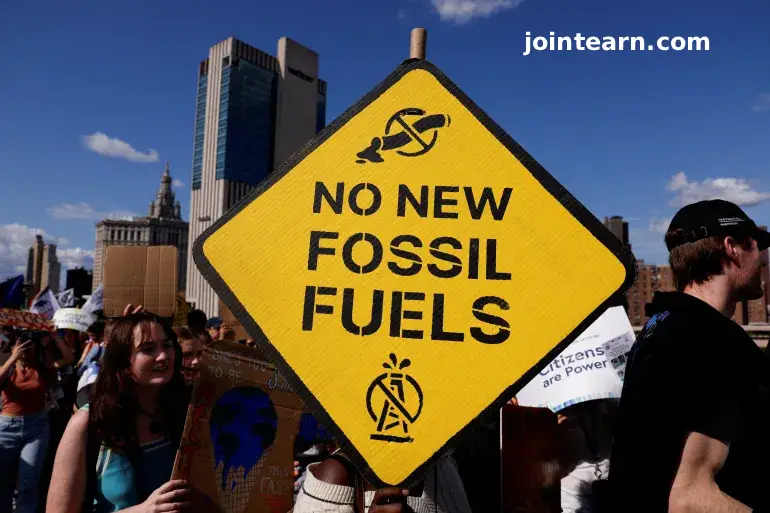
Amnesty International has issued a stark warning about the global dangers of fossil fuel infrastructure, calling it a major contributor to both climate change and human rights violations worldwide. In a new report released during the COP30 UN climate conference in Belem, Brazil, the human rights organization urged global leaders to end what it described as the world’s “obsession” with coal, oil, and gas.
Fossil Fuel Expansion Poses Health and Human Rights Risks
The report highlights that at least 2 billion people—about a quarter of the world’s population—live within 5 kilometers (3.1 miles) of over 18,000 active fossil fuel infrastructure sites. These include coal plants, oil and gas extraction facilities, and mining operations.
Amnesty International Secretary-General Agnes Callamard emphasized that the industry’s rapid expansion is endangering billions of lives and irreversibly impacting the planet’s climate system. She warned:
“This ever-expanding industry is destroying critical ecosystems and posing severe health risks to communities around the world.”
Health studies linked to proximity to fossil fuel projects show increased rates of cancer, asthma, cardiovascular disease, and other chronic illnesses.
Indigenous Peoples and Human Rights Concerns
The report also highlights the human rights abuses associated with fossil fuel expansion, particularly against Indigenous communities and environmental activists. At least 16.1 percent of global fossil fuel infrastructure is located on Indigenous lands, despite Indigenous populations making up less than 5 percent of the world’s population.
Callamard stressed the importance of addressing the human impact of fossil fuels:
“The age of fossil fuel must end now. It is a major source of human rights violations and one of the main causes historically.”
Amnesty noted that Indigenous activists often face threats, violence, and enforced disappearances while defending their lands from fossil fuel exploitation.
Global Climate Conference Focus
The warning comes as world leaders, climate experts, and human rights advocates gather at COP30 in Belem to discuss international climate action. Observers have questioned how countries can meet their greenhouse gas reduction targets while continuing to expand fossil fuel projects.
Indigenous activists staged protests during the summit, demanding that their voices be heard in shaping climate policies. Kumi Naidoo, president of the Fossil Fuel Non-Proliferation Treaty campaign, called on leaders to adopt a clear roadmap for phasing out fossil fuels, stating:
“For 30 years, we’ve been treating the symptoms without turning off the tap. Fossil fuels are the primary cause of the climate emergency.”
Fossil Fuels: Leading Contributors to Climate Change
According to the United Nations, coal, oil, and gas are the largest contributors to global climate change, responsible for approximately 68 percent of worldwide greenhouse gas emissions. Despite international pledges to reduce emissions, fossil fuel dependency continues to grow, creating conflicts between energy development and climate commitments.
A 2024 UN Development Programme survey found that over 80 percent of people globally want stronger climate action, with 72 percent supporting a rapid phase-out of fossil fuels.
Amnesty International’s Call to Action
The organization urged governments to:
- Halt new fossil fuel projects.
- Protect Indigenous rights and lands.
- Implement policies that accelerate the transition to renewable energy.
- Treat the climate crisis as both a human rights and environmental emergency.
Callamard concluded that addressing the fossil fuel crisis is not just an environmental imperative but a moral obligation to protect the lives and health of billions of people worldwide.


Leave a Reply